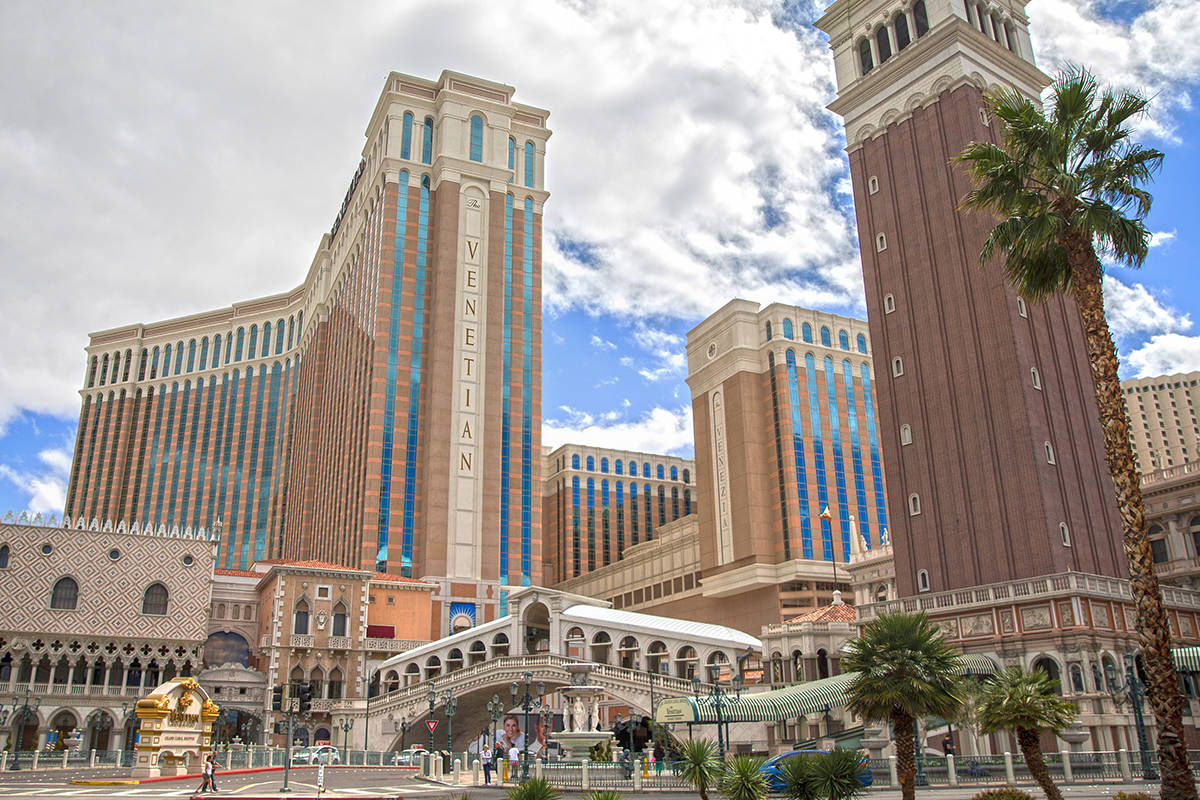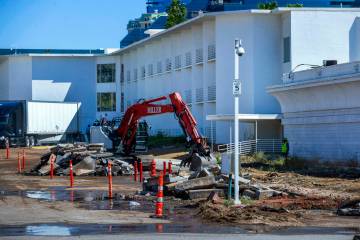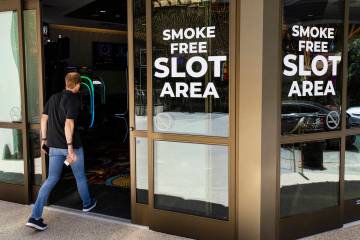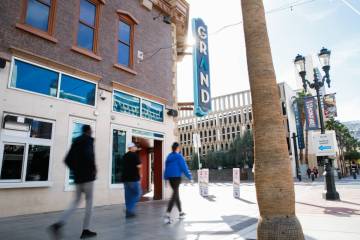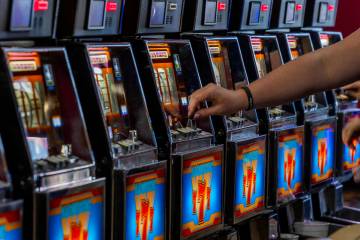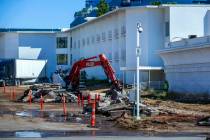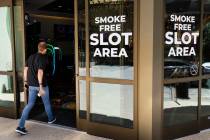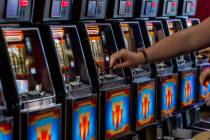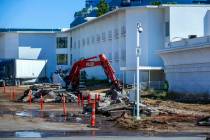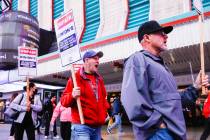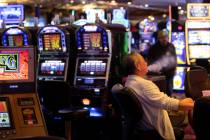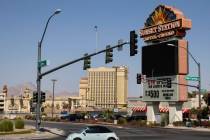Sands reports 97% revenue drop in Q2, forecasts bleak 2020 for Las Vegas
Las Vegas Sands Corp. executives offered a gloomy near-term forecast of the company’s Las Vegas business — the meetings and conventions industry — when they reported second-quarter earnings on Wednesday.
The Las Vegas-based company’s net revenue plunged 97.1 percent in the second quarter to $98 million compared with $3.334 billion in the same quarter a year ago, and the casino company showed net losses amid the coronavirus pandemic and casino shutdowns across the world.
The company was the first Las Vegas-based casino operator to report second-quarter earnings.
Sands’ Venetian and Palazzo resorts were closed for more than two-thirds of the quarter that ended June 30, reopening June 4. The company was also handicapped in Macao by border closures from nearby Guangdong province that were in place most of the quarter.
The Chinese central government has started to relax the border policies with Guangdong, but there are still restrictions in place from Hong Kong.
Bleak outlook
Sands Chief Operating Officer Rob Goldstein told analysts on a conference call with investors Wednesday that the outlook for the company’s venerable meetings and conventions business is bleak for the rest of the year.
“Of all (our markets, Las Vegas, Macao and Singapore), I view Las Vegas least favorably,” Goldstein said. “Las Vegas, especially our company but really the whole city, is dependent on group, convention and banquet segments’ return. I see nothing that indicates that 2020 will return at all.”
The company is dependent on conventions driving food and beverage, hotel rooms, entertainment and casino revenue. A glimpse at those quarterly figures tells the story: Hotel room revenue fell 94.2 percent to $9 million.
Occupancy rates decreased 63.7 percentage points to 33.5 percent. The average daily room rate fell 35.5 percent to $162. Slot win declined 81.7 percent to $11 million and the table games drop decreased 80.7 percent to $99 million, while win percentage decreased 6 points to 11.8 percent.
“Las Vegas cannot perform without the return of these segments,” Goldstein said. “It cannot make money with negligible occupancy midweek, maybe 50 percent capacity on the weekend. In essence, we’re running a regional casino predicated on drive-in business.”
Of the three markets Sands is in, Las Vegas is the one most dependent on fly-in traffic. Goldstein said only about 10 percent of the Macao market flies to airports in Macao or Hong Kong. In Las Vegas, about 45 percent of the market is dependent on people traveling on planes. And right now, the virus is keeping passengers off them in droves.
“We have airlift somewhere around 40 percent of what it was,” Goldstein said. “Of that 40 percent, the occupancy of those planes is much less than what it was previously. We’re in a world of hurt here in terms of Vegas. As far as looking ahead, I don’t crystal ball (any changes until) ‘21.”
Vaccine essential
Goldstein said he doesn’t see any change until a COVID-19 vaccine is developed and deployed.
“We may have to take a zero in that category for 2020,” he said. “ It’s an amazing transition from making half a billion dollars a year ago when we were hitting on all cylinders and today. It’s painful and it remains painful for the immediate future.”
Goldstein believes Macao will rebound more rapidly. He expects more border sanctions will fall like dominos and when they do, pent-up demand will fill casinos. Goldstein doesn’t even think they’ll have to spend much marketing money to get customers back.
“The question of how we market the building is to just open the doors and watch the customers come in,” Goldstein told investors.
Sands Chairman and CEO Sheldon Adelson gave additional details about the company’s decision to withdraw from plans to develop an integrated resort in Japan.
“No one wanted to be in Japan more than Sheldon and the team here,” Goldstein said. “We were very bullish on Japan. We spent a lot of time and money and were very hopeful. But the environment there just wasn’t suitable to make an investment that this company demands in terms of return.”
Adelson said proposed Japanese policies played a role in the decision.
“The regulations that were promulgated by the Japanese government were not conducive to attracting the kind of investment that it requires,” Adelson said. “They were talking about withholding income tax from foreign winners. So if a player comes in from another country and wins, the government wants the operator to withhold the taxes to pay the Japanese government.”
He added that if the tax structure changed, “our mind is open to go back.”
High tax rates
For now, Sands is more interested in reinvesting in Macao and Singapore and possibly looking at opportunities in South Korea.
Sands shares, traded on the New York Stock Exchange, were down $1.16, 2.4 percent on average volume. After hours, shares dropped further, 44 cents, 0.9 percent, to end at $46.40 a share.
The Review-Journal is owned by the family of Las Vegas Sands Corp. Chairman and CEO Sheldon Adelson.
Contact Richard N. Velotta at rvelotta@reviewjournal.com or 702-477-3893. Follow @RickVelotta on Twitter. Review-Journal staff writer Bailey Schulz contributed to this report.
By the numbers
Second-quarter revenue and earnings for Las Vegas-based Las Vegas Sands Corp., operator of The Venetian and Palazzo on the Strip and resorts in Macao and Singapore. (NYSE: LVS)
Revenue
2Q 2020: $98 million
2Q 2019: $3.334 billion
Change: -97.1%
Net income/(loss)
2Q 2020: ($985 million)
2Q 2019: $1.108 billion
Change: —
Earnings/(loss) per share
2Q 2020: ($1.07)
2Q 2019: $1.24
Change: —



